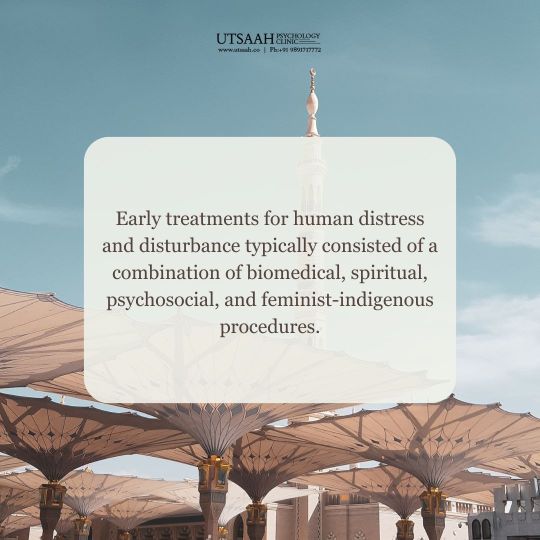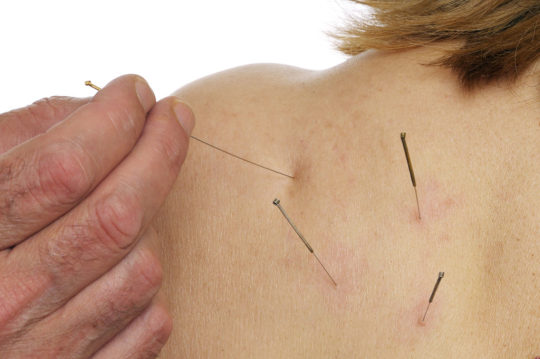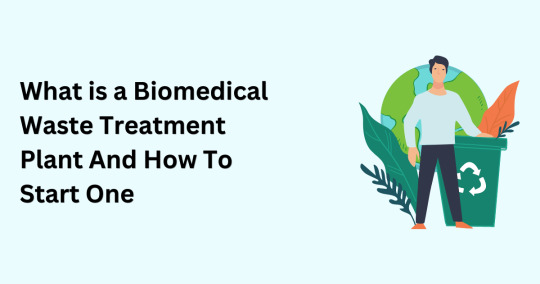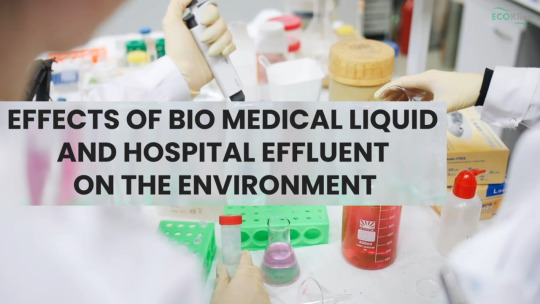#Biomedical treatment
Text
Superlasers for the real world.
Join the celebration of the International Day of Light 2023 in Czech Republic. Date: 20/05/2023 - 20/05/2023.
Location: Dolni Brezany, Czech Republic.

youtube
#Centrum HiLASE#Light and medicine#biomedical diagnostics#biomedical treatment#laser technology#laser therapy#international day of light#16 may#light-based technologies#Czech Republic
0 notes
Text
Vagus Nerve research in Multiple Sclerosis
Vagus Nerve research in Multiple Sclerosis
Ok a new MS research blog brought to my attention by my dad yesterday. It has to do with the Vagus Nerve (pronounced like Las Vegas).
The vagus is a major nerve that runs throughout the body and controls crucial functions, like heart function and blood pressure, digestion, breathing and immune response. It also conveys sensory information to the brain about the current status of internal organs;…

View On WordPress
#biomedical research#biomedical treatment#Clinical trials#daily life with ms#diagnosed with MS#living with a chronic disease#living with MS#living with multiple sclerosis#MS#ms challenges#ms life#ms over 10 years#ms over 20 years#Ms progression#MS research#ms treatment#ms treatments#Multiple sclerosis#new approach to treatment#vagus nerve
0 notes
Text
Using advanced hybrid electrochemical technology for hospital effluent treatment and biomedical liquid waste treatment system - ECOKlien
#Biomedical Liquid Waste Treatment System#Hospital Effluent Treatment System#BioMedical Liquid Disinfection System#liquid waste#waste water treatment#biomedical#hospital#hospital liquid waste
3 notes
·
View notes
Text

"Early treatments for human distress and disturbance typically consisted of a combination of biomedical, spiritual, psychosocial, and feminist-indigenous procedures."
#quote#quotes#quotestoliveby#quotesaboutlife#quoteoftheday#early#treatment#human#distress#disturbance#typically#combination#biomedical#spiritual#psychosocial#feminist#indigenous#procedures
0 notes
Text
just got out of an intense therapy session. turns out I am not handling certain things as well as I thought I was.
#ive just been trying not to think about the friend thing (all my friends graduating and how i left things as school)#talked about how i had trouble making friends when i started college because of covid and my busy schedule as a biomedical engineering major#talked about my friend's suicide and how alone i felt and was never really able to process it#talked about how much of a burden i feel i am to others especially my parents#and how i didnt tell them when my depression started getting bad again because my dad was going through cancer treatment#and how hard it was to function last spring and how what i was going through was too heavy to put on my friends#honestly i think it was really helpful to be able to talk about these things and process a bit#not the ideal day to cry as much as i did tho because i got my septum pierced yesterday and crying makes your nose run
1 note
·
View note
Text

Bio Medical Dry Needling, Calgary - Credence Physiotherapy & Massage
Dry needling is a technique physical therapist use for the treatment of pain and movement impairments. Credence Physiotherapy and Massage centre in Calagry.
#Biomedical Dry Needling Calgary#Physiotherapy Centre Calgary#Motor Vehicle Accident Injuries Calgary#Musculoskeletal Therapy Calgary#TMJ Calgary#Balance & Vestibular Rehabilitation Calgary#Physiotherapy Clinic Calgary#Massage Clinic Calgary#Massage Centre Calgary#Motor Vehicle Accident Calgary#Motor Vehicle Accident Treatment Calgary#MVA Rehabilitation Calgary#Motor Vehicle Accident Rehabilitation Calgary#Motor Vehicle Accident injury treatment Calgary#MVA injury treatment Calgary
0 notes
Text

The Art of Healing Touch: A Guide to Massage Therapy
Explore the world of massage therapy in our comprehensive guide. Discover techniques, benefits, & the art of healing touch. Start your journey to wellness today
#physiotherapy virtual Mississauga#myofascial massage Mississauga#Massage Therapy Mississauga#Physiotherapy Centre Mississauga#physiotherapy massage Mississauga#physiotherapy treatment Mississauga#Chiropractic Treatments Mississauga#Biomedical Dry Needling Mississauga#foot care clinic Mississauga#shock wave therapy Mississauga#wave therapy Mississauga
0 notes
Text
idk i think a lot of people sort of build up schizo-spec diagnoses in their head as this example of a "clearly biomedical disease that is the scariest possible example of mental illness that is always a crisis no matter what." and i'm not going to sit here and say that schizoaffective is always pleasant to live with, or pretend that it's something that I can manage perfectly-it does cause me distress a lot of the time, and makes some things very difficult. but for me, psychosis is by far not the most difficult symptom i have to deal with, compared to some of the other things that have brought me distress. And yet it's always the symptom that is reacted to with the most fear, confusion, and disgust by other people. I hate it when people generalize psychosis as always and inherently and forever a crisis, and ignore the fact that everyone who experiences psychosis is going to have their own experiences, perspectives on how it impacts them, and that treating psychosis as a super scary, inherently dangerous symptom is incredibly stigmatizing and prevents us from receiving support and care from our communities.
idk. i just really wish people would realize that for some people, psychosis can sometimes be a neutral or even positive experience (i've had some incredibly lovely psychosis experiences), and that by positioning psychosis as a "super scary disease that has no quality of life" and only offering carceral solutions, it perpetuates a pattern where we get continually pushed into harmful treatments. Instead of a situation where our autonomy is respected, where we're offered a wide variety of treatments from meds to therapies to peer support like Hearing Voices Network to material community based support and where we're allowed to define our own experience of psychosis based on how it actually affects us. like, i don't want to deny that psychosis is often distressing for many of us--but I do think we have the responsibility to evaluate where we've learned about psychosis, what societal messages we've internalized about psychosis, what kinds of knowledge about psychosis do we not have access to, and just actually think in depth about how our biases impact how we communicate about psychosis.
4K notes
·
View notes
Text
What is a Biomedical Waste Treatment Plant And How To Start One
profile, V. (2023, March 2). What is a Biomedical Waste Treatment Plant And How To Start One. What Is a Biomedical Waste Treatment Plant and How to Start One. https://businesspoineer.blogspot.com/2023/03/what-is-biomedical-waste-treatment.html
What is a Biomedical Waste Treatment Plant?
A biomedical waste treatment plant is a facility that specializes in the disposal of medical waste generated…

View On WordPress
#bio medical waste recycling plant setup#bio medical waste treatment#bio medical waste treatment india#bio medical waste treatment plant#bio medical waste treatment setup#bio medical waste treatment unit#bio waste disposal#bio waste management unit#bio waste management unit in Delhi#bio waste management unit in india#bio waste treatment unit#biomedical waste disposal#biomedical waste management#biomedical waste management certifications#biomedical waste management license#biomedical waste management unit#bmw waste management#medical waste recycling plant setup#medical waste recycling plant setup in india#treatment of biomedical waste
0 notes
Text
Public lecture on the role of the light in the modern science and medicine.

Join us for a marvelous celebration of the International Day of Light 2023 at Sechenov University! During the event we will make a special show and lecture about the role of the light in the modern science and medicine. Our SPIE and OPTICA Student Chapter will organize an exhibition on light discoveries and its impact in biomedical diagnostics and treatment
International Day of Light 2023 in Russia at the Sechenov University.
Date: 16/05/2023 - 16/05/2023.
Location: Moscow, Russia.

#Sechenov University#international day of light#16 may#Light ad medicine#modern science#light science#biomedical diagnostics#Biomedical treatment#Russia#science and medicine#light discoveries#Международный день света
0 notes
Note
would you be able to recommend any books/resources that provide a good intro to anti-psychiatry? rlly fascinated by this subject
to be clear, i wouldn't describe myself as explicitly anti-psychiatry. people very close to me rely on psychiatric medication in order to relieve symptoms that aren't just disruptive to their role in capitalist society but cause them immense suffering in general. while i have had particularly negative experiences with psychiatric medication, i have also seen it save people's lives and pull them out of acute crisis. i've been seeing a therapist for four years who has had a very positive effect on my life and has always been respectful of my refusal to take psychiatric medication.
i also think it is necessary to acknowledge that while psychiatry and psychology are disciplines that enforce capitalist hegemony, the alternative to being capable of functioning within capitalist society isn't much of an alternative at all when capitalism's inescapability is part of its very nature. that being said, i think it's extremely important for anyone living with mental illness, being treated for it, or supporting someone who is to be aware of:
the insufficiency of the biomedical/disease model and the very slow speed at which the field is moving away from it
the inability of medical professionals to identify the etiology of any mental illness
the immense risk associated with virtually all psychiatric medications (particularly antipsychotics and mood stabilizers)
the very profitable marriage between psychiatry and the pharmaceutical industry
the influence of western (and particularly american) hegemony over how we treat what we call mental illness
the prevalence of coercive/forced treatment
i also think it's extremely important within that context to do your own research and ensure that you're engaging with material from a variety of different sources, maintaining an awareness of any biases they may have and how those affect their research and conclusions, whether they skew towards anti-psychiatry or not. the most important thing to do if you or your loved one has any kind of illness is to be well-informed and capable of advocacy, which is largely why i've been doing a bit of a deep dive on the subject lately.
what i'm reading now:
desperate remedies: psychiatry's turbulent quest to cure mental illness by andrew scull
psychiatric hegemony: a marxist theory of mental illness by bruce m.z. cohen
psychiatry in crisis: at the crossroads of social sciences, the humanities, and neuroscience by vincenzo di nicola and drozdstoj stoyanov
other recommendations:
i think your best bet for more introductory material would be robert whitaker's work, including anatomy of an epidemic: magic bullets, psychiatric drugs, and the astonishing rise of mental illness in america and mad in america: bad science, bad medicine, and the enduring mistreatment of the mentally ill. he started an organization called mad in america which has a lot of resources and information, including a podcast of the same name. there's also a network of associated groups that are based in different areas of the world if you're interested in non-american perspectives.
the medicalization of society: on the transformation of human conditions into treatable disorders by peter conrad
on the heels of ignorance: psychiatry and the politics of not knowing by owen whooley
here is a link to some of the old icarus project zines and pamphlets. i was briefly involved with a small icarus group when i was younger and there were some serious issues with the (dis)organization and some of the principles upon which the local groups operated. i'm sure these still have some useful and/or interesting information, and if nothing else they're interesting relics from the anti-psychiatry movement in the early 2000s. i'm less familiar with some of the newer work they put out before their dissolution in 2020. here is an article on the history of icarus from one of the co-founders, published in 2014.
i would recommend looking into bioethics and biopolitics in general, particularly focault. if you want to get into any of the seminal figures in anti-psychiatry (laing, szasz, etc), i would personally advise a very critical reading of their work. as always, this is not an explicit endorsement of any of these works, authors, or their respective viewpoints.
105 notes
·
View notes
Text

In the world of healthcare, the consequences of mishandling biomedical and hospital effluent are vast. All natural resources infiltrated, disrupted ecosystems, a breeding ground for diseases and a surge in microbial resistance. Though vast, these challenges can be easily tackled by ECOklien.
#biomedical#healthcare#liquid waste#hospital#medicine#hospital liquid waste#liquid waste treatment#biomedical liquid waste treatment system#effects of biomedical waste#effects of biomedical liquid waste#effects of hospital effluent
1 note
·
View note
Note
hi i just saw some of ur posts on anti-psychiatry and then kept reading more on ur blog about what it is. for the most part i agree with what you've said about how capitalism uses psychiatry to designate people who are bad/abnormal and how it aligns itself w/ misogyny, racism, and so on. with that said i think i have some similar concerns/questions as another asker about what this means for those who do/would suffer even in a non-capitalist society, even if we didn't ascribe a specific label to X symptoms. if we are opposed to psychiatry, what are the options for people today who are suffering and want help? are you opposed to psychopharmaceuticals and therapy? i dont mean to ask this in a confrontational/accusatory way, i'm just new to this and genuinely curious
There are a few different parts to your question & so there are a few different angles to approach it from—
are you opposed to psychopharmaceuticals and therapy?
If this means "are anti-psych writers and activists opposed to individuals seeking treatment that they personally find helpful," then, no���a couple posts in my psychiatry tag do clarify this.
If it means "are there anti-psych critiques of psychopharmaceuticals and therapy," then, yes. Keep in mind that I'm not a neurobiologist or otherwise an expert on medications marketed as treatments for mental illnesses, but:
The evidence for the effectiveness of SSRIs in particular is sort of non-existent—even many psychiatrists who promote the biomedical model of mental illness doubt their efficacy, and refer to the "chemical imbalance" theory that enforces their usage as "an outmoded way of thinking" or "a kind of urban legend—never a theory seriously propounded by well-informed psychiatrists." But promoting SSRIs (and corresponding "serotonin deficiency" theory of depression, despite the fact that no solid evidence links depression to low serotonin) is very profitable for pharmaceutical companies. Despite the fact that direct-to-consumer advertisements are nominally regulated in the U.S., the FDA doesn't challenge these claims.
Other psychotropic drugs, such as "antipsychotics" or "antianxiety" medication, shouldn't really be called e.g. "antipsychotics" as if they specifically targeted the biological source of psychosis. No biological cause of any specific psychiatric diagnosis has been found (p. 851, section 5.1). In fact, rather than "act[ing] against neurochemical substrates of disorders or symptoms," these medications "produc[e] altered, drug induced states"—but despite the fact that they "produce global alterations in brain functioning," they are marketed as if they had "specific efficacy in reducing psychotic symptoms." Reactions to these medications that don't have to do with psychosis or anxiety (blunted affect, akathisia) are dismissed as "side effects," as though they don't arise from the same global alteration in brain function that produces the "desirable" antianxiety/antipsychotic effect. This doesn't mean "psychiatric medication turns you into a zombie so you shouldn't take it"—it means that these medications should be marketed honestly, as things that alter brain function as a whole, rather than marketed as if they target specific symptoms in a way that they cannot do, in accordance with a biomedical model of mental illness the accuracy of which has never been substantiated.
Psychiatrised people also point out that meds are used as a tool for furthering and maintaining psychiatrists' control: meds that patients are hesitant about or do not want are pushed on them, while patients who desire medication are "drug-seeking" or trying to take on the role of clinician or something and will routinely be denied care. Psychiatrised people who refuse medications are "noncompliant" and prone to psychiatric incarceration, re-incarceration, or continued/lengthened incarceration.
As for therapy: there are critiques of certain therapies (e.g. CBT, DBT) as unhelpful, status-quo-enforcing, forcing compliance, retraumatising &c. There are also critiques of therapy as representing a capitalist outsourcing of emotional closeness and emotional work away from community systems that people largely don't have in place; therapy as existing within a psychiatric system that constrains how therapists, however well-intentioned, are able to behave (e.g. mandatory reporting laws); psychotherapy forced on psychiatrised people as a matter of state control; therapists as being in a dangerous amount of power over psychiatrised people and being hailed as neutral despite the fact that their emotions and politics can and do get in the way of them being helpful. The wealth divide in terms of access to therapy is also commonly talked about; insurance (in the U.S.) or the NHS (in England) may only pay for pre-formulated group workbook types of therapy such as DBT, while more long-form, free-form, relationship-focused talk therapy may only be accessible to those who can pay 100-something an hour for it.
None of these critiques make it unethical or something for someone to get treatment that they find helpful. It's also worth noting that some of these critiques may be coming from "anti-psych" people who criticise the sources of psychiatric power, and some of them may come from people who think of themselves as advocating for reform of some of the most egregious effects of psychiatric power.
if we are opposed to psychiatry, what are the options for people today who are suffering and want help?
This looks like a few different things at a few different levels. At its most narrow and individual, it involves opting out of and resisting calls for psychiatrisation and involuntary institutionalisation of individuals—not calling the cops on people who are acting strange in public, breaking mandatory reporting laws and guidelines where we think them likely to cause harm. It involves sharing information—information about antipsychiatry critiques of psychiatric institutions, advice about how to manage therapists' and psychiatrists' egos, advice about which psychiatrists to avoid—so that people do not blame themselves if they find their encounters with psychiatry unhelpful or traumatising.
At the most broad, it's the same question as the question of how to build dual power and resist the power of capitalism writ large—building communal structures that present meaningful alternatives to psychiatry as an institution. I think there's much to be learned here from prison abolitionists and from popular movements that seek to protect people from deportation. You might also look into R. D. Laing's Kingsley Hall experiment.
what does this mean for those who would suffer even in a non-capitalist society, even if we didn't ascribe a specific label to X symptoms?
It means that people need access to honest, reliable information about what psychotropic medications do, and the right to chuse whether or not to take these medications without the threat of a psychiatrist pulling a lever that immediately restricts or removes their autonomy. It means that people need to be connected to each other in communities with planned, free resources that ensure that everyone, including severely disabled people whom no one particularly likes as individuals, has access to basic resources. It means that people need to be free to make their own choices regarding their minds and their health, even if other people may view those decisions as disastrous. There is simply no defensible way to revoke people's basic autonomy on the basis of "mental illness" (here I'm not talking about e.g. prison abolitionist rehabilitative justice types of things, which must restrict autonomy to be effective).
Also, I've mostly left the idea of who this would actually be untouched, since my central argument ("psychiatry as it currently exists is part of the biomedical arm of capitalism and the state, and the epistemologies it produces and employs and the power it exerts are thus in the service of capitalism and the state") doesn't really rest on delineating who would and wouldn't suffer from whatever mental differences they have regardless of what society they're in. But it's worth mentioning that the category of "people who are going to suffer (to whatever degree) no matter what" may be narrower than some would think—psychosis, for instance, is sometimes experienced very differently by people in societies that don't stigmatise it. I see people objecting to (their interpretations of) antipsych arguments with things along the lines of "well maybe depression and anxiety are caused by capitalism, but I'm schizophrenic so this doesn't apply to me"—as though hallucinations are perforce more physically "real," more "biological," more "extra-cultural" in nature than something like depression. But the point is that positing a specific neurobiological etiology for any psychiatric diagnosis is unsubstantiated, and that capitalist society affects how every "mental illness" is read and experienced (though no one is arguing that e.g. hallucinations wouldn't always exist in some form).
#psychiatry#long post /#mental illness#antipsych#antipsychiatry#Anonymous#questions#psychotropic drugs#ssris
727 notes
·
View notes
Note
(Very genuine question) how do you handle breaking down the “chemical imbalance that needs to be treated” framework when so many people cling to that framework to reassure themselves that it isn’t their fault. I have been reading on psychiatry and I would like to feel more comfortable bringing it up and pushing back when I hear harmful rhetoric but worry about doing more harm than good due to my in-eloquence and explaining things badly
great question and honestly, this is something i want to improve on in my own communication. it's part of a wider and very pernicious lie that functions to defend both medical practitioners' professional positions and the capitalist status quo by re-locating all suffering to the realm of the individual pathology and presenting pathologisation and medicalisation as not only liberating, but the only possible path to validation & care. there's no room here for a contextualisation of suffering or a critique of the social conditions that bring it about; it's also a lie that fails patients over and over again because, for the many who don't respond adequately to whatever the approved biomedical treatment is, the pathologise-and-treat model can only respond that they must be doing something wrong. with the 'chemical imbalance' conception of depression, for example, so many patients who then don't feel better on SSRIs come to believe their brains must be uniquely 'broken' and that they are simply neurologically doomed to feel like this forever. this is, for the psychiatrist and the state, preferable to having depressed people who are accustomed to viewing their suffering as in any way social, environmental, or collective!
anyway, like i said this is something i also want to work on so i don't know that i have a cheat code here. i try to emphasise throughout any discussions on such a topic that i'm offering a third way forward: not "this is biological so it's not your fault" but also not "this isn't biological so you can fix it". it's a completely different paradigm for understanding suffering. i also think, where drugs like SSRIs are concerned, it can be helpful to point to studies (particularly meta-analyses) on their relative ineffectiveness, and to emphasise that you're not contradicting any individual experiences this person may or may not be describing with these drugs; the point is a wider one. i think it's understandable that many people encountering any kind of anti-psych critique will at first be extremely wary about the idea that moving away from bio-psychiatry means blaming people for their own 'illnesses' and i try to come at these conversations with a lot of patience to re-iterate that moral culpability is not an inevitable part of a non-disease understanding of mental suffering. it can also help a lot to connect this to wider disability politics, and to point out that pathologisation and medicalisation in general are not some kind of shortcut to avoid stigma and moral judgment; in fact, often the opposite.
251 notes
·
View notes
Text
Published Jan 13, 2024. Corrections posted April 17, 2023.
Abstract
Long COVID is an often debilitating illness that occurs in at least 10% of severe acute respiratory syndrome coronavirus 2 (SARS-CoV-2) infections. More than 200 symptoms have been identified with impacts on multiple organ systems. At least 65 million individuals worldwide are estimated to have long COVID, with cases increasing daily. Biomedical research has made substantial progress in identifying various pathophysiological changes and risk factors and in characterizing the illness; further, similarities with other viral-onset illnesses such as myalgic encephalomyelitis/chronic fatigue syndrome and postural orthostatic tachycardia syndrome have laid the groundwork for research in the field. In this Review, we explore the current literature and highlight key findings, the overlap with other conditions, the variable onset of symptoms, long COVID in children and the impact of vaccinations. Although these key findings are critical to understanding long COVID, current diagnostic and treatment options are insufficient, and clinical trials must be prioritized that address leading hypotheses. Additionally, to strengthen long COVID research, future studies must account for biases and SARS-CoV-2 testing issues, build on viral-onset research, be inclusive of marginalized populations and meaningfully engage patients throughout the research process.
#mask up#covid#covid 19#covid isn't over#pandemic#covid conscious#covid is airborne#wear a mask#coronavirus#long covid
71 notes
·
View notes
Text
#Laser Therapy Calgary#Biomedical Dry Needling Calgary#Musculoskeletal Therapy Calgary#TMJ Calgary#Balance & Vestibular Rehabilitation Calgary#Physiotherapy Clinic Calgary#Massage Clinic Calgary#Massage Centre Calgary#Motor Vehicle Accident Calgary#Motor Vehicle Accident Treatment Calgary#Motor Vehicle Accident Rehabilitation Calgary#MVA injury treatment Calgary#Motor Vehicle Accident injury treatment Calgary
0 notes